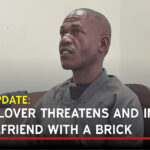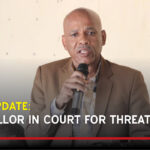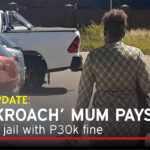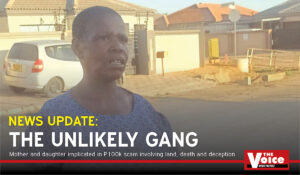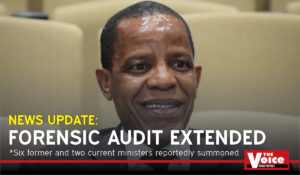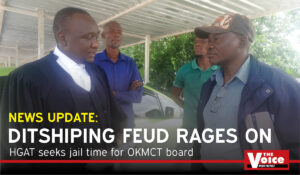77 years after she left, an old woman has returned to reclaim a ploughing field she insists belonged to her late father and is rightfully hers.
Olatotse Mogoadibe, 81, was just one year old when her father passed away.
Three years later, 1947, Mogoadibe and her elder sister, Rebinang Bogang, relocated from Xobe, a small settlement in the Okavango Delta where the field is located, to live with their uncle in another village.
A lifetime later, Mogoadibe is back, taking her grievances to Maun Customary Court as she seeks to have the field’s current occupant, 70-year-old Ogaisitse Samosopa evicted.
“We used to play in that field and I know for sure that it has an anthill which we used to play on while our parents rested under the Motswere tree during ploughing season. In the same field, there is a small well with a rocky surface,” disclosed the granny during last Tuesday’s session.
She explained her quest to get the field begun two years ago, following the introduction of a new Tribal Land Act that allows for registration and claims of ‘Matlotla’, or ruins.
“I went to Xobe and met with Modisa Samosopa and later his brother Koiho Samosopa to inform them that I have returned to claim rights of my father’s field. Their father was my father’s neighbour so they know where our field is. They told me that Ogaisitse (Samosopa) has occupied the field and indeed we noticed that she created a cut line and erected poles around the field as a sign of its occupancy,” continued Mogoadibe.
Backing up her sister’s words, Bogang, who was in court as a witness, told court the field belonged to their late father, Mohumanegi Wamunyema Kayombo, who died when they were very young.
“Our father was a farmer. He stayed in Xobe and died there around 1944. His body was buried in the kraal in Xobe. We stayed there for some time until our uncle came for us in 1947,” stated Bogang.
The two women maintain they are Xobe natives, noting while they do not have land certificate for the said field, it is hardly surprising as their father acquired the land before the formation of landboards and existence of land overseers.
Bogang further said they know the exact location of their field, and, echoing her sister’s earlier words, vividly described its features, including the trees, anthill and well.
In the opposite camp, calmly defending her right to the field, Samosopa said she never ‘snatched the land’ but acquired it legally and had the certificate to prove it.
She told court she married one Motokwa Samosopa in the early 80s and in 1987 they applied for the ploughing field and were granted the land rights by the land board.
“The land was under my husband’s names. Later on my husband became ill and passed on in 1997. After his death, a change of ownership was made into my names. I did not steal or take the field from Mme Olatotse Mogoadibe or any of her family members or relatives. I am in no way related to them and therefore have no entitlement to their inheritance. When we applied for the land we were not aware of any previous owners,” said Samosopa.
The case continues in September, when more witnesses will be called. It was heard by Kgosi Gadibintshe Saudu.




